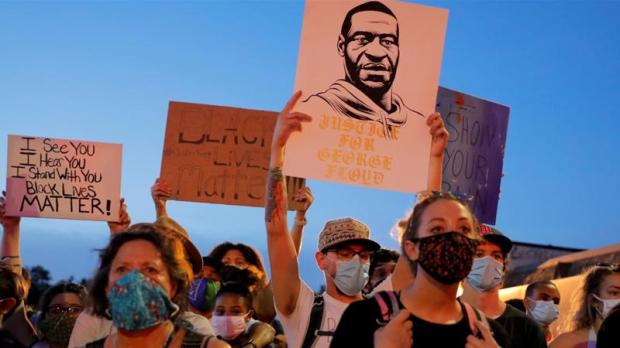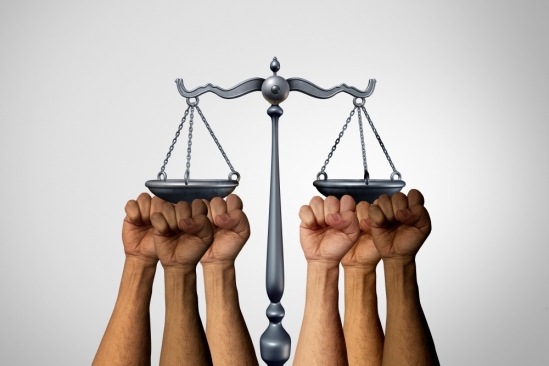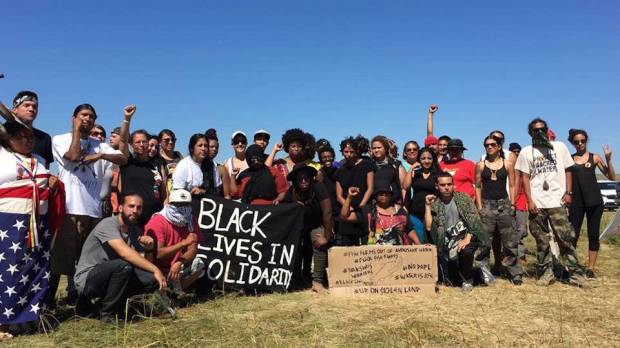
Photo Credit: Al Jazeera
Too many whites and, unfortunately, too many blacks are communicating that they don’t understand why many protests emerging after the lynching of George Floyd by corrupt white police officer Derek Chauvin—with lethal assistance from three other evil police officers, Thomas Lane, J.A. Kueng, and Tou Thao—in Minneapolis, Minnesota, feature some rioting, looting, violence, and significant property damage. These whites and blacks assert that they don’t see the purpose of such licentiousness, especially since, from their collective perspective, this will not resurrect George Floyd. In this piece, I offer clarity about some of the reasoning that informs illicit elements of the George Floyd uprisings.
This will, therefore, disabuse folks of the argument that the uprisings lack purpose. Although one may disagree with unlawful elements of these uprisings, once a rationale is divulged, one cannot genuinely say that the criminal acts are meaningless; one can oppose the meaning offered, but future attempts to claim these uprisings are bereft of purpose will be intellectually disingenuous.
The George Floyd uprisings signal a national and global flowering of resistance to the vicious and enduring legacies of racism, white supremacy, Jim and Jane Crow, poverty, and militarism that the Black Lives Matter Movement (BLM), an organic and revolutionary citizens’, including global citizens, movement for racial, social, economic, and educational justice, has initiated. To be clear, these uprisings are part of the BLM.
Is Peaceful Protesting Possible?
Although most in the BLM are peaceful, non-violent people, they are fighting for peace. They are protesting the absence of peace in America. This dearth of peace does not make “peaceful protesting,” as traditionally conceived, possible. When so many racists, especially those who can employ state power against blacks, are unwilling to recognize black humanity, blacks and their allies cannot “peacefully protest”—if by “peacefully protest” one means asking for equity, freedom, and justice.
If you’re black, it’s futile to ask racists, especially those capable of using state power, for anything. They don’t see and hear you. What most of us in the BLM are doing isn’t asking anyone for anything; we’re demanding equity, freedom, and justice. For blacks and other ethnic minorities, we can never have peace in America until we force America to see and hear us.
America can never be a nation of peace until she’s compelled.
See and Hear Black People
While rioting, looting, and violence develop sometimes during demonstrations by those in the BLM, although these prohibited acts are primarily done by opportunists, individuals and organizations unconnected to the BLM, blacks are now being seen and heard. Racists and whites who are not allies of those in the BLM are feeling unsafe and experiencing significant financial wounds due to property damage and loss.
Whites see and hear blacks when they feel unsafe and have their money seriously affected.
The George Floyd uprisings are forcing the nation and world to see and hear black people.
Dr. Martin Luther King, Jr. Explained Rioting
In “The Other America,” a speech delivered at Stanford University, Dr. Martin Luther King, Jr., contended:
“I think America must see that riots do not develop out of thin air. Certain conditions continue to exist in our society which must be condemned as vigorously as we condemn riots. But in the final analysis, a riot is the language of the unheard. And what is it that America has failed to hear? It has failed to hear that the plight of the Negro poor has worsened over the last few years. It has failed to hear that the promises of freedom and justice have not been met. And it has failed to hear that large segments of white society are more concerned about tranquility and the status quo than about justice, equality, and humanity. And so in a real sense our nation’s summers of riots are caused by our nation’s winters of delay. And as long as America postpones justice, we stand in the position of having these recurrences of violence and riots over and over again. Social justice and progress are the absolute guarantors of riot prevention.”
If you don’t like “riots,” then radically change the “certain conditions” that “continue to exist in our society which must be condemned as vigorously as we condemn riots.” For whites and blacks who don’t understand why some are resorting to rioting, looting, violence, and general lawlessness, remember Dr. King’s powerful words: “…a riot is the language of the unheard.” King let us know what America has not heard from the unheard: its poverty and denied freedom and justice.
Also, I want to accentuate, as it is critical to those lacking comprehension about why some are engaging in rioting, looting, violence, and general lawlessness, Dr. King’s point about how many whites have failed to recognize that they are more concerned about peace and the status quo than justice, equality and humanity: “And it [America] has failed to hear that large segments of white society are more concerned about tranquility and the status quo than about justice, equality, and humanity.”
Dr. King ultimately indicted America, white America, as responsible for the “certain conditions that continue to exist” that promote rioting: “And so in a real sense our nation’s summers of riots are caused by our nation’s winters of delay. And as long as America postpones justice, we stand in the position of having these recurrences of violence and riots over and over again.”
If you want the rioting to end, then implement Dr. King’s solution: “Social justice and progress are the absolute guarantors of riot prevention.”
While Dr. King joined white America’s advocacy for peace (“tranquility”), he desired for white America to be just as committed to justice, equality, and humanity. Too many whites, however, have failed to heed this message.
Black People Have Had Enough
George Floyd is the latest example of how it has always been “open season” on blacks in America. An increasing number of white police officers are heinously and senselessly killing blacks in public and private space. And black people and their allies have had enough.
Again, we’ve had enough.
We’re showing you we’ve had enough.
We’ve been tired of white folks killing us, including at the hands of white police officers, but you, white America, are beginning to feel just how tired we are.
Too many black bodies have been murdered by white police officers and white people in general. No one has been held accountable for most of the black blood on their white blood-stained hands.
If you don’t like what you’re witnessing, then become a part of the change, radical transformation America needs.
The Dawning of a New America
A beautiful multi-ethnic national and global coalition demanding equity and justice for all is rising; you see it in your streets and on your televisions.
America will become a more just, more equitable, more peaceful nation, and the revolution that will engender this radical transformation will, in part, be televised, tweeted, and shared on Facebook, Instagram, and YouTube.
Dr. Antonio Maurice Daniels
University of Wisconsin-Madison













